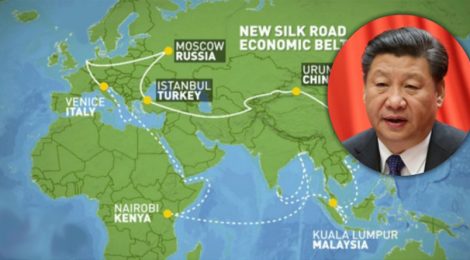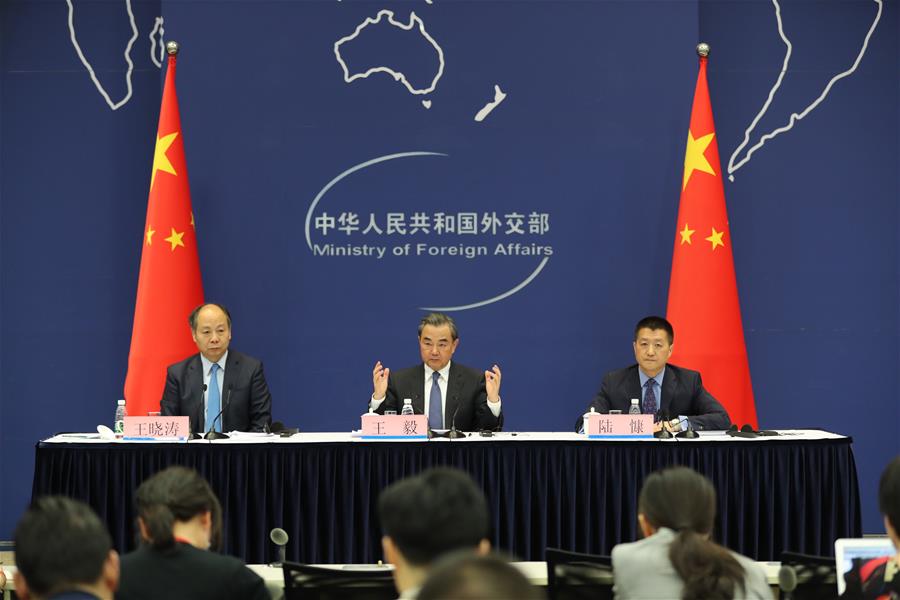
The One Belt, One Road Forum: distinguished guests and notable absentees
The major diplomatic event on China’s New Silk Road, and probably the most important event the country will host this year, will take place May 14th and 15t in in Beijing. It is the One Belt, One Road (OBOR) Forum on International Cooperation, and is expected to see the participation of many international leaders.
The Belt and Road Initiative, comprising the Silk Road Economic Belt and the 21st Century Maritime Silk Road, was first proposed by China in 2013, encompassing a variety of infrastructure projects, such as railways, ports and power grids, connecting Eurasia from side to side.
This month, the first freight train from England to China left from Essex to reach Zhejiang province, Eastern China. The train travelled in the opposite direction in January for the first time, making London the 15th European city to have direct rail links with China. The famous Yuxinou渝新瓯train, connecting Chongqing and Duisburg and covering more than 11.000 kilometres, made its first route in 2012, and since 2014 has provided a regular service between the two cities. The rail route is widely touted as faster than shipping by sea and cheaper than shipping by air.
 The OBOR represents President Xi’s landmark programme, and, according to Xinhua News Agency, is expected to cover more than 60 percent of the world’s population and more than one third of global economic output. For this reason, Beijing has provided an initial fund for the equivalent US$40 billion to a Silk Road Fund, and US$50 billion for the establishment of the China-led Asian Infrastructure Investment Bank, aimed at increasing China’s presence in the infrastructure market, and developing industrial and financial cooperation along Eurasia.
The OBOR represents President Xi’s landmark programme, and, according to Xinhua News Agency, is expected to cover more than 60 percent of the world’s population and more than one third of global economic output. For this reason, Beijing has provided an initial fund for the equivalent US$40 billion to a Silk Road Fund, and US$50 billion for the establishment of the China-led Asian Infrastructure Investment Bank, aimed at increasing China’s presence in the infrastructure market, and developing industrial and financial cooperation along Eurasia.
With the New Silk Road initiative, China is seeking to portray itself as a new champion for globalisation and worldwide cooperation, at a time when both Europe and the US have been embracing more protectionist and isolationist agendas. China’s Foreign Minister, Wang Yi, said the Belt and Road initiative is meant to address the backlash against globalisation. “Today’s world requires an open and inclusive platform, to gather our resources and to face the challenges of globalisation,” Wang Yi said.
Among the different leaders taking part to the Forum, Russian President Vladmir Putin is one of the main enthusiast of the OBOR project. Most of Asian leaders and China’s most reliable allies will not miss the appointment in Beijing: Pakistani Prime Minister, Nawaz Sharif, and Cambodian Prime Minister, Hun Sen, will stand in the front line, together with leaders of Malaysia, Kazakhstan, Indonesia and Malaysia, all generally good partners of China.
From the Group of Seven industrialised nations, only our Prime Minister, Paolo Gentiloni, is listed among the attendees; also Spanish, Greek, Hungarian, Serb and Polish Prime Ministers and Swiss and Czech presidents will be in Beijing.
The little presence from Western countries – not to mentioned the announced absence of Japan, South and North Korea, as well as Australia – is to be attributed to a general concern for an alleged lack of transparency and details in the project, together with a suspicious for China’s broader political aims. Even if Beijing is trying to highlight how its effort is aimed at prompting global development, it does not go unnoticed that the present geopolitical uncertainty gives China an opportunity to grow as a global leader, and it seems to have found a receptive audience for its New Silk Road.




